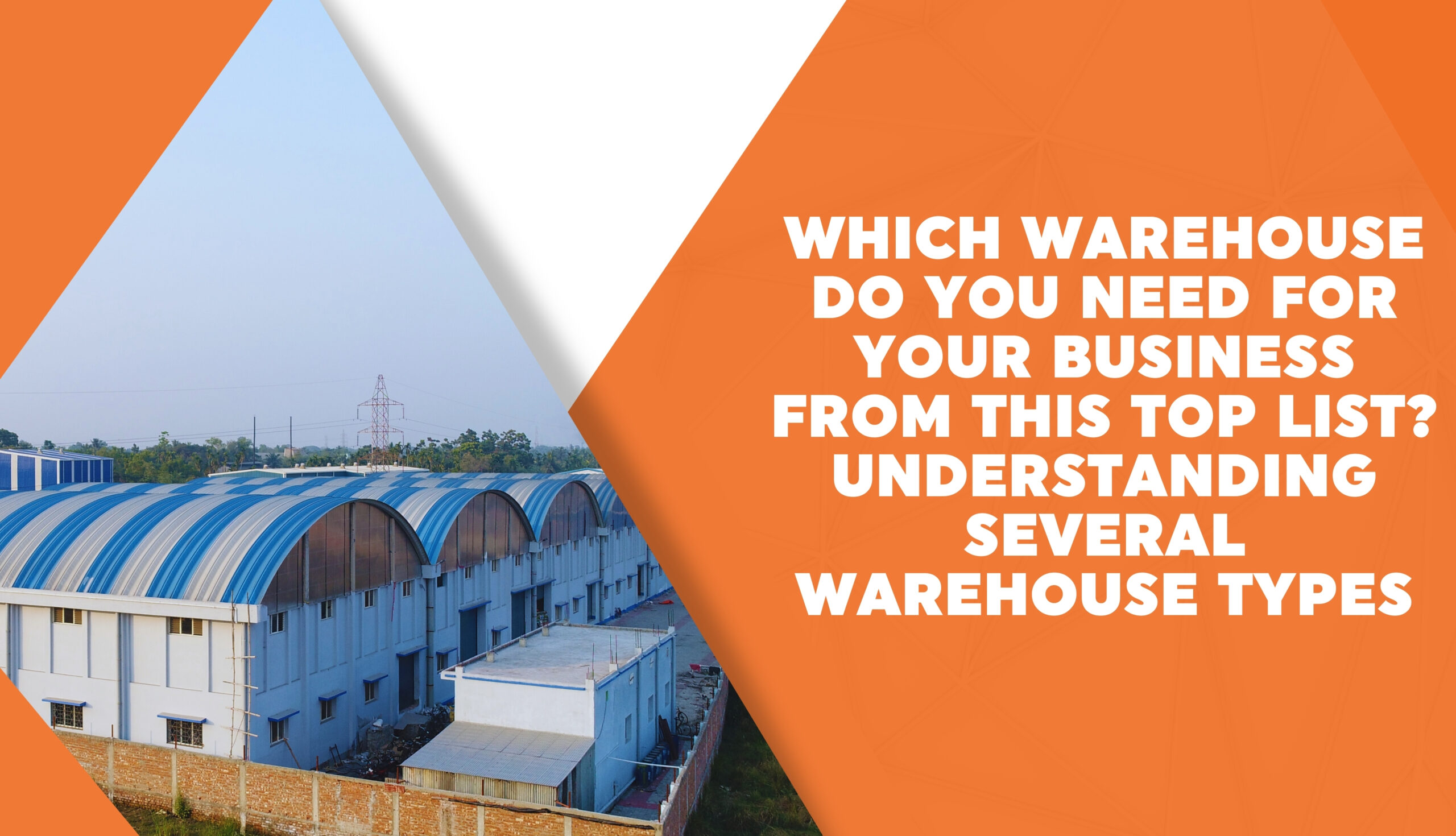Warehouses are the most significant considerations in supply chains and logistics. Buying one such industrial real estate isn’t a straightforward job. With diversification, the warehouse selection process can become the most challenging job for any business.
Businesses have a niche on their own, and so do warehouses. If you are looking for the best warehouse, choose the right one depending on your business requirements. On that note, this post presents the most significant types of warehouses available for Kolkata-based businesses.
Outlining the Types of Warehouses: Which One Suits Your Business Demands?
Not every warehouse can suit your business preferences and requirements. So, we have presented the list of warehouses from where you can choose the right one. Read on to learn which type of warehouse suits your demands:
Proprietary Warehouse
Private or proprietary warehouses are the best investments for large retail corporations, distributors, manufacturers, and wholesalers. They are the ideal place to store merchandise. After purchasing the goods in bulk, you can store them in these spaces. Besides ensuring systematic order distribution, it reduces the cost in the long run.
The prime reason to buy these industrial spaces is they offer a better regional presence. So, if you are a Kolkata-based retail corporation, wholesaler, distributor, or manufacturer, you can buy one of these warehouses to improve your regional presence and save costs.
Public Warehouse
Also referred to as third-party logistics or 3PL warehouses, these industrial areas are operated by companies that lease spaces to other small firms. These spaces are less expensive than private ones. They work as outsourced logistics operations where individuals and businesses can store, receive, and ship their products to end customers.
Maximum public warehouses work on the pallet-in or pallet-out model. That means billing occurs yearly or monthly and is computed by the square footage or pallet. Small businesses (including individuals) or budding establishments can operate seasonally in these warehouses.
Reverse Logistics Warehouses
Suppose a customer wants to return a specific product due to damaged or wrong item delivery. In such cases, a reverse logistics warehouse receives the product and decides what to do with the returned item. In some instances, undamaged products are repackaged and resold.
However, for damaged items, this type of warehouse has to have a facility dedicated to this procedure or general warehouses. So, selecting a reverse logistics industrial space lets companies improve customer satisfaction. In addition, it also minimises challenges associated with reselling/reusing the item or reducing waste materials.
Fulfilment Centres
Fulfilment centres work as public warehouses. However, these centres include logistics functions such as receiving, storing, processing, and fulfilling end users’ orders. Businesses can use these spaces to pick, pack, and transport their goods. Now, how does a fulfilment centre work?
Firstly, the centre receives the goods from the manufacturer or the company’s stock. The centre then stores, processes, and ships the products to customers with the help of automated technology and specialised equipment.
Automated Warehouses
With technology booming rapidly, automated warehouses have become a significant innovation. These spaces, known as smart warehouses, use automated technologies to reduce manual errors. Such a space is well-integrated into the warehousing process and helps perform manual tasks automatically. Some include weighing, order picking, packing, and shipping materials. In short, any warehouse can become an automated space as long as it uses automated technologies.
Cross-Docking Warehouses
Do you want to buy a space where you can sort products from inbound to outbound trucks? It’s time you select a cross-docking warehouse. The primary purpose of such a warehouse is to distribute products more effectively without storing them for a more extended period. Firstly, items arrive at the warehouse from different inbound trucks. They are stored and distributed in outbound trucks for specific routes. Through business-to-business or door-to-door, the trucks deliver these items accordingly.
Temperature-Controlled Warehouses
If you want to store sensitive or perishable items in a warehouse, you need a space that controls the temperature effectively. That’s where the role of a climate or temperature-controlled warehouse comes into being. With this technology, your items are stored safely within the required temperature or moisture range. These warehouses use thermostats, HVAC systems, insulation, and dehumidifiers to maintain the moisture level, temperature, and airflow internally.
Finally
Indeed, warehouses offer storage facilities for your upstream and downstream supply chain inventory before it reaches its destination for delivery. So, the foundation step to choosing the right e-commerce warehouse solution is selecting a warehouse. You can choose an industrial space according to the types mentioned above.



0 Comments